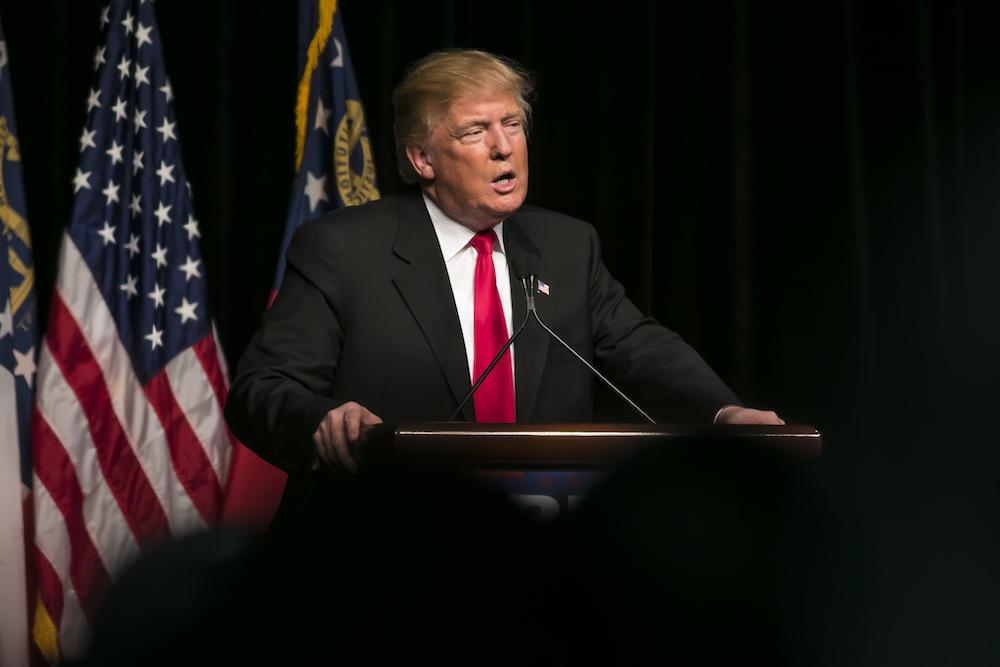Politics
Report: House Democrats Have “Resigned” to Inevitability of Second Trump Presidency

During a rally on Saturday night, former President Donald Trump was shot in the ear and promptly escorted off stage, visibly bleeding. The assassination attempt resulted in the deaths of the assailant and one atendee, while two others sustained injuries but are now in stable condition.
The alarming security breach has ignited urgent inquiries and demands for a congressional investigation into the Secret Service’s protocols. Meanwhile, the ongoing concerns surrounding Joe Biden’s candidacy have temporarily receded among congressional Democrats, who are now prioritizing the safety of themselves and their staff over party politics, providing a respite for the president amidst his challenges.
“We’re all just focused on expressing condolences … and keeping our teams safe,” commented a House Democrat known for his critical stance on Biden, according to Axios. Meanwhile, a senior House Democrat described the current environment within the party following the shooting as too “chaotic” to engage in any internal disputes over leadership.
A second senior House Democrat conveyed that the shooting has inadvertently eased some pressure, noting it would “be bad form to make any statements against President Biden” at this time. When another Democrat, who has been skeptical of Biden was questioned about the ongoing concerns surrounding the his candidacy, they responded with, “I don’t think that’s the focus right now.”
Most legislators who spoke with Axios believe it is premature to determine if the current easing of tensions will persist until the Democratic National Convention next month. However, a second senior House Democrat suggested a potential reason for a sustained calm, stating, “We’ve all resigned ourselves to a second Trump presidency.”
The White House has announced that Biden’s planned trip to Austin, Texas, scheduled for Monday, will be postponed.
Assassination attempts on U.S. presidents have been grim episodes in American history, reflecting not only the vulnerabilities of these high-profile leaders but also the social and political tensions of their times. Most famously, President Abraham Lincoln was assassinated by John Wilkes Booth, a Confederate sympathizer, in April 1865 at Ford’s Theatre.
After Theodore Roosevelt’s presidency, during a 1912 campaign stop in Milwaukee, Roosevelt was shot by John Schrank, a saloonkeeper. The bullet lodged in his chest after penetrating his steel eyeglass case and a thick copy of the speech he was carrying. Remarkably, Roosevelt delivered his speech with the bullet still in his body.
In 1933, before his inauguration, Franklin D. Roosevelt was targeted in Miami by Giuseppe Zangara. Zangara missed Roosevelt but killed Chicago Mayor Anton Cermak and wounded several others. Zangara claimed his motive was hatred of all rulers.
In 1950, two Puerto Rican nationalists attempted to storm Blair House, where Harry S. Truman was residing during White House renovations. The attackers and White House police exchanged gunfire, resulting in the death of one officer and one attacker.
John F. Kennedy was assassinated in 1963 by Lee Harvey Oswald in Dallas, Texas, a tragic event that has spawned numerous conspiracy theories. Prior to his death, Kennedy was reportedly the target of a thwarted attempt in December 1960 in Palm Beach, Florida.
President Gerald Ford survived two assassination attempts in September 1975, both by women associated with the radical group the Symbionese Liberation Army. Lynette “Squeaky” Fromme attempted to shoot Ford in Sacramento, but her gun failed to fire. Later that month, Sara Jane Moore fired a shot at Ford in San Francisco but missed.
In 1981, Ronald Reagan was shot by John Hinckley Jr. outside a Washington D.C. hotel. The bullet punctured a lung and narrowly missed Reagan’s heart. Hinckley’s motive was reportedly to impress actress Jodie Foster.

